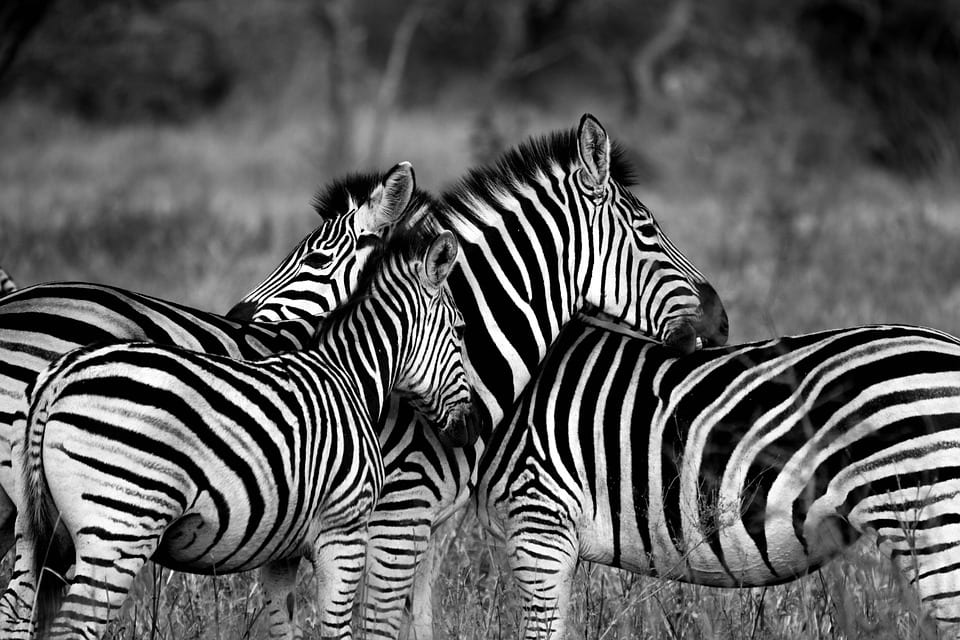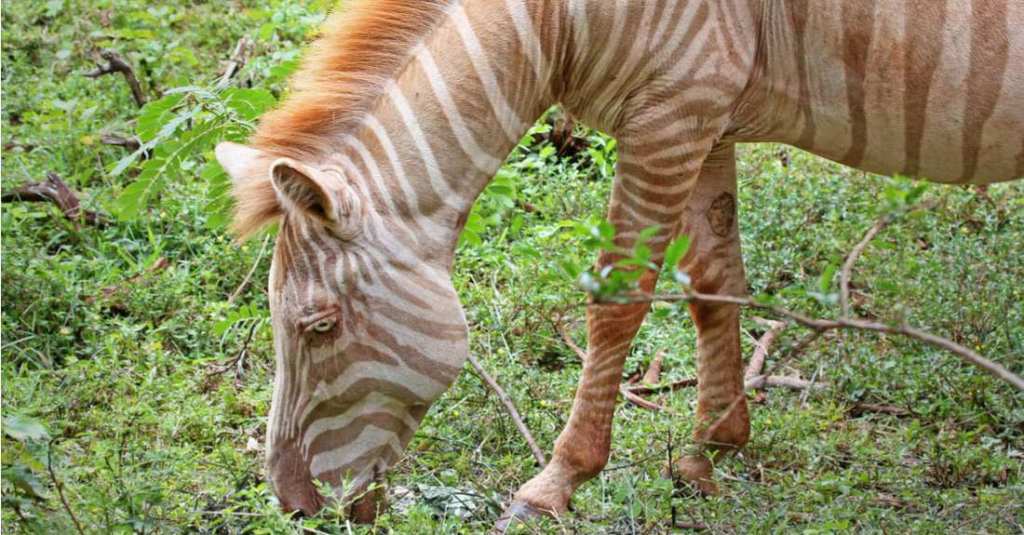“Blonde” zebras, or zebras that are striped white and a sort of golden-yellow color, are extremely rare. But sightings of a rare “blonde” zebra in the Serengeti National Park seem to confirm that, if accepted by their herd, the lighter-colored version can survive in the wild without issue.
The photographs were taken by National Geographic photographer Sergio Pitamitz, who was out to capture images of migrating zebras when he saw what looked like an all-white member of the striped crowd.
At closer glance, he saw a white-and-gold striped animal drinking from a watering hole. He told National Geographic about the experience.
“At first I thought it was a zebra that had rolled in the dust.”
When it didn’t wash off in the water, though, he realized he was looking at something special.

Image Credit: Shutterstock
Scientists think the zebra has partial albinism, a genetic condition that leads to a lack of melanin. It’s been recorded in a number of animals, from orangutans to penguins. The opposite condition, melanism, has also been seen in the animal world – it turns normally lighter colored animals so dark as to nearly be black.
Albinism is rare to see it in the wild, though, since albino animals are much easier to spot than their camouflaged relatives. Until now, no one was sure whether an albino zebra could survive outside captivity. Zebra stripes actually aren’t for camouflage or climate control, so not having black stripes hypothetically shouldn’t affect a zebra’s ability to survive – scientists just weren’t sure whether an albino zebra would be accepted by the herd.
The pictures prove that doesn’t seem to be an issue.

Image Credit: Pixabay
Fun fact: Each zebra’s pattern is unique, like a fingerprint, so maybe they don’t notice how different this one is – melanistic and even spotted zebras have been previously seen in the wild.
Another fun fact: there are three species of zebra – plains zebras, mountain zebras, and Grevy’s zebra – and all have slightly different markings.
Nice to think that animal species aren’t bothered by their differences, instead accepting the fact that none of them look the same. Humans could learn a thing or two!






